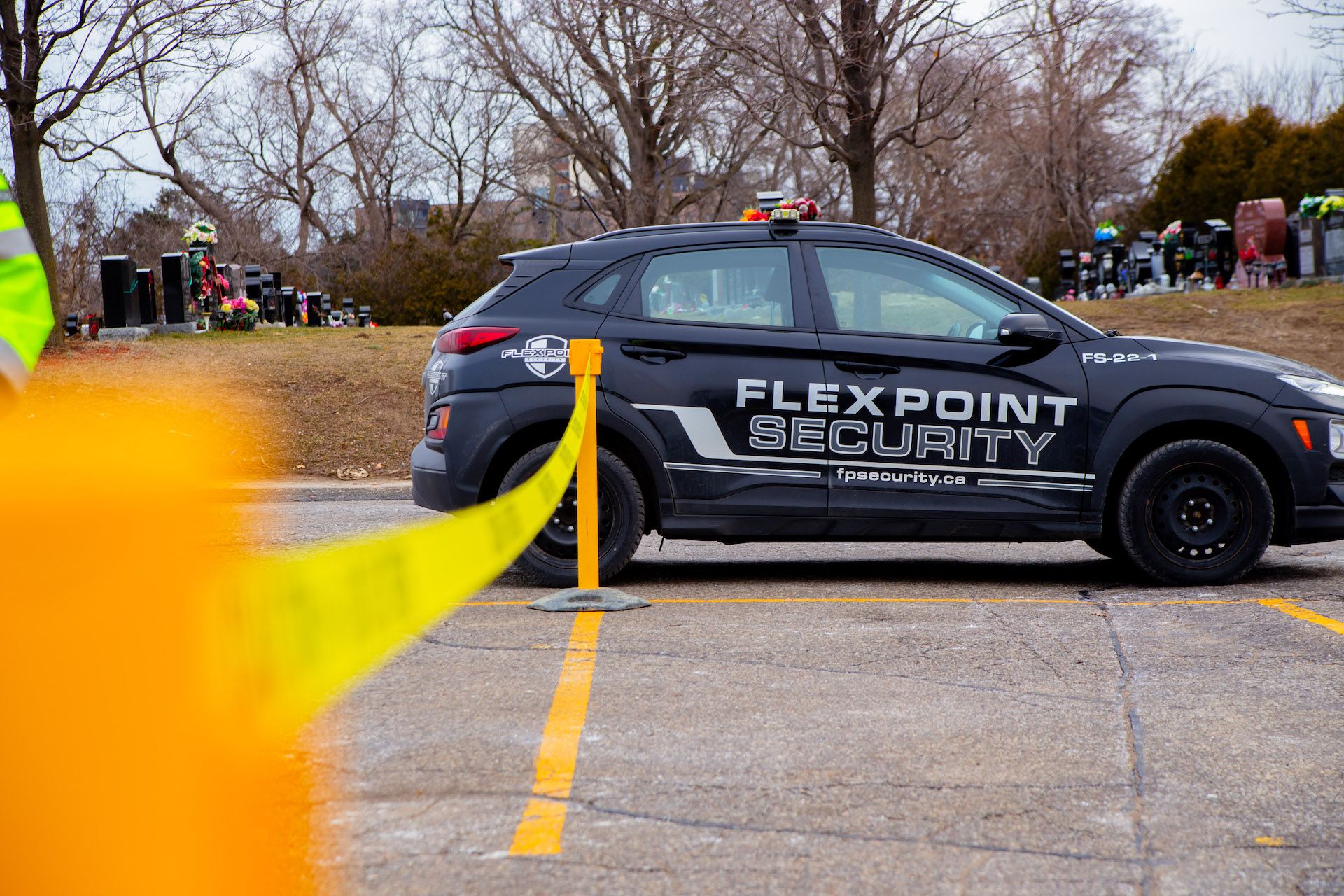
Security guards are essential to many businesses and organizations, providing a sense of safety and security to employees and visitors alike. However, several common myths about security guards can turn people off from pursuing it as a career.
In this insight, we will debunk some of these myths and provide an accurate understanding of the role of security guards.
Myth #1: Security Guards Are Just "Rent-a-Cops"
One common myth about security guards is that they are just "rent-a-cops" without real authority or training. Lies! Security guards receive extensive training on various topics, including emergency response, first aid, crowd control, and conflict resolution. They are often required to have specific certifications and licenses, depending on their job requirements and the jurisdiction they work in.
Myth #2: Security Guards Are Just "Wannabe Cops"
Different than being “rent-a-cops,” but still highly offensive. Some people assume that security guards are failed police officers who couldn't make the cut or are simply biding their time until they can become a cop. This is simply not true. While there are some similarities between the roles of security guards and police officers, they are distinct professions with different responsibilities, training, and requirements.
Security guards are focused on protecting people and property in a specific location, while police officers are responsible for enforcing the law and maintaining public safety across a larger jurisdiction. Additionally, while some security guards may aspire to become police officers, many others are content with their role as security professionals and have no desire to switch careers.
Myth #3: Security Guards Don't Need Education or Training
Another common myth is that security guards don't need education or training to do their job effectively. In fact, many employers require security guards to have at minimum a high school diploma or equivalent, and some require additional education or training in specific areas, such as criminal justice or emergency management.
Many security guards have advanced education and specialized training in first aid, conflict resolution, citizen's arrests, and more. Additionally, security guards must have strong communication and observational skills, as well as the ability to think on their feet and respond quickly to changing situations. These skills are developed at training centres, where experienced teachers prepare students for the unexpected situations they might face as security guards.
Myth #4: Security Guards Just Stand Around All Day
Some people believe that security guards just stand around all day, doing nothing but waiting for something to happen. While this might seem true on the surface, security guards are constantly vigilant, monitoring their surroundings and looking for potential threats. Security guard work is tiring work—security guards can be expected to conduct patrols, respond to alarms, and interact with the public; again, all tiring work!
Myth #5: Security Guards Are All The Same
Another myth is that all security guards are the same and that anyone can do the job. However, as mentioned earlier, different security guard positions require different skills and training, depending on the specific job requirements and the environment in which they work. For example, a security guard in a hospital will have different duties and responsibilities than a security guard at a construction site.
It's important to understand that security guards have specialized training and skills to effectively protect people and property in their work setting.
Myth #6: Security Guards Have Limited Career Opportunities
Another common myth about security guards is that the job offers limited career opportunities and is a dead-end job with no chance for advancement. This couldn't be further from the truth! As mentioned earlier, there are many different types of security guard positions available, and many of these offer opportunities for career advancement and specialization.
For example, a security guard may be able to become a security supervisor, manager, or director, or specialize in a specific area of security, such as cybersecurity or executive protection. Additionally, some security guard positions offer opportunities for further education and training, which can open up even more career paths in the security industry.
Being a Security Guard is Rewarding, Challenging, and Resourceful!
These myths we’ve outlined can prevent people from considering a security guard career, despite its many benefits and opportunities. Be open-minded when starting your career as a security guard—while it might seem simple and limiting at first, there are rewarding aspects that might grab your attention for the long haul.
We hope this insight clears some of the common misconceptions about security guards. For any questions about the security guard field, contact us at training@fpsecurity.ca.
In this insight, we will debunk some of these myths and provide an accurate understanding of the role of security guards.
Myth #1: Security Guards Are Just "Rent-a-Cops"
One common myth about security guards is that they are just "rent-a-cops" without real authority or training. Lies! Security guards receive extensive training on various topics, including emergency response, first aid, crowd control, and conflict resolution. They are often required to have specific certifications and licenses, depending on their job requirements and the jurisdiction they work in.
Myth #2: Security Guards Are Just "Wannabe Cops"
Different than being “rent-a-cops,” but still highly offensive. Some people assume that security guards are failed police officers who couldn't make the cut or are simply biding their time until they can become a cop. This is simply not true. While there are some similarities between the roles of security guards and police officers, they are distinct professions with different responsibilities, training, and requirements.
Security guards are focused on protecting people and property in a specific location, while police officers are responsible for enforcing the law and maintaining public safety across a larger jurisdiction. Additionally, while some security guards may aspire to become police officers, many others are content with their role as security professionals and have no desire to switch careers.
Myth #3: Security Guards Don't Need Education or Training
Another common myth is that security guards don't need education or training to do their job effectively. In fact, many employers require security guards to have at minimum a high school diploma or equivalent, and some require additional education or training in specific areas, such as criminal justice or emergency management.
Many security guards have advanced education and specialized training in first aid, conflict resolution, citizen's arrests, and more. Additionally, security guards must have strong communication and observational skills, as well as the ability to think on their feet and respond quickly to changing situations. These skills are developed at training centres, where experienced teachers prepare students for the unexpected situations they might face as security guards.
Myth #4: Security Guards Just Stand Around All Day
Some people believe that security guards just stand around all day, doing nothing but waiting for something to happen. While this might seem true on the surface, security guards are constantly vigilant, monitoring their surroundings and looking for potential threats. Security guard work is tiring work—security guards can be expected to conduct patrols, respond to alarms, and interact with the public; again, all tiring work!
Myth #5: Security Guards Are All The Same
Another myth is that all security guards are the same and that anyone can do the job. However, as mentioned earlier, different security guard positions require different skills and training, depending on the specific job requirements and the environment in which they work. For example, a security guard in a hospital will have different duties and responsibilities than a security guard at a construction site.
It's important to understand that security guards have specialized training and skills to effectively protect people and property in their work setting.
Myth #6: Security Guards Have Limited Career Opportunities
Another common myth about security guards is that the job offers limited career opportunities and is a dead-end job with no chance for advancement. This couldn't be further from the truth! As mentioned earlier, there are many different types of security guard positions available, and many of these offer opportunities for career advancement and specialization.
For example, a security guard may be able to become a security supervisor, manager, or director, or specialize in a specific area of security, such as cybersecurity or executive protection. Additionally, some security guard positions offer opportunities for further education and training, which can open up even more career paths in the security industry.
Being a Security Guard is Rewarding, Challenging, and Resourceful!
These myths we’ve outlined can prevent people from considering a security guard career, despite its many benefits and opportunities. Be open-minded when starting your career as a security guard—while it might seem simple and limiting at first, there are rewarding aspects that might grab your attention for the long haul.
We hope this insight clears some of the common misconceptions about security guards. For any questions about the security guard field, contact us at training@fpsecurity.ca.

